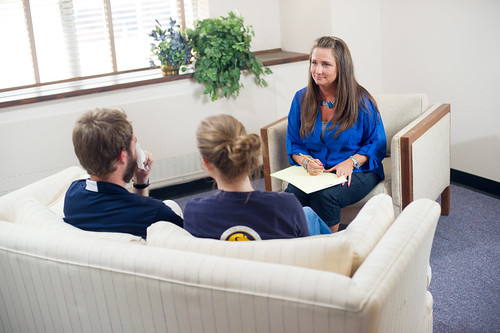While many people think of a crisis as a traumatic event, in mental health terms it refers to how people cope with these stressful experiences. The events a crisis counselor will deal with can include natural disasters, terror attacks, or the death of a loved one. During these times, crisis counselors step in to help people deal with the situation. Here are five interesting aspects about crisis counseling that many people are surprised to learn.
Dates Back to World War I
While the idea behind counseling has been around for centuries, the modern practice of crisis counseling is rather new. The roots of this practice date back to World War I and helping soldiers deal with what they had witnessed. Before this time, many soldiers who suffered psychological breakdowns were actually viewed as disloyal to their country. However, counselors began to realize that soldiers who received immediate treatment fared better than those who received no treatment at all.
Crisis Counseling is Short Term

Image via Flickr by A&M-Commerce
Unlike psychotherapy, crisis counseling is very brief and usually lasts anywhere from a few weeks to less than three months. The idea behind crisis counseling is to help people focus on the stressful situation, treat their immediate needs, and teach them coping skills so they can handle the same or similar situations in the future. Crisis counselors do not replace long-term therapy options. Instead, they help their clients deal with the immediate effects of a crisis.
Crisis Counselors Need Strong Ties to the Community
Oftentimes, the clients who crisis counselors meet with will be in a state of withdrawal or shock. At that point, they’re unable to handle their most basic needs. This is when crisis counselors will step in. They will be an advocate for their clients and make sure those needs are met. The counselors may need to help their clients apply for social services, find a place to sleep, or contact loved ones.
Children Need Different Care Than Adults
While a disaster can impact both children and adults, crisis counselors know that helping children after the event requires a different perspective. Although everyone responds differently, children tend to act as if they’re in a fog, experience headaches or stomachaches, or act out emotionally. Since children often don’t have the vocabulary necessary to express their feelings through regular therapy, crisis counselors use other forms of therapy such as art or play therapy to help children identify their thoughts and reframe them.
Crisis Counseling Requires Special Training
While some programs for therapists or social workers will briefly review the protocol for handling crisis counseling, most counselors need special training in crisis counseling before starting their careers. This training can include knowing how and when to call the police or other first responders. The training will also cover how to develop boundaries, how to deal with cultural differences, and the ethical practices all crisis counselors need to follow.
Even though the idea behind crisis counseling is a fairly modern concept, many people are still unfamiliar with the field and it’s surprising and interesting aspects.
Sources
Very Well Mind, How Crisis Counseling Can Help People Coping With Trauma
Counseling Today, A Calming Presence
